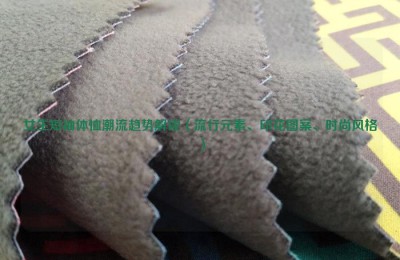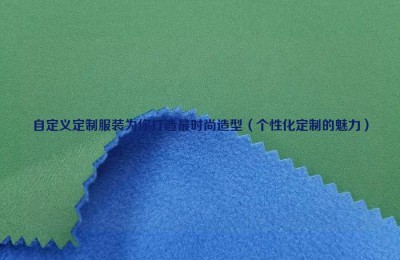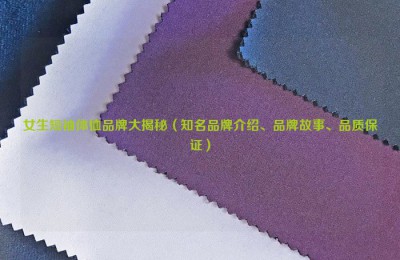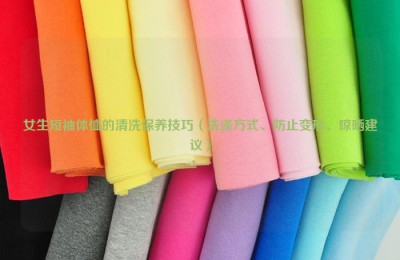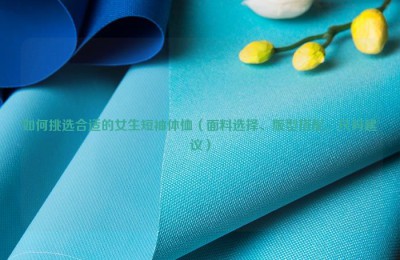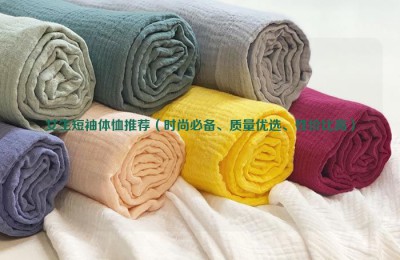From the performance, process requirements, application methods and fields of dyeing and finishing equipment, dyeing and finishing equipment has the following characteristics.
1. Various types of equipment
The objects of dyeing and finishing involve various textile fiber loose fibers, yarns, woven fabrics and knitted fabrics, etc. Due to their different dyeing and finishing methods, process characteristics and quality requirements The same, the corresponding processing equipment is also different. Therefore, there are many types of dyeing and finishing equipment.
2. The equipment includes special unit machines, general unit machines, and combined machines. During the dyeing and finishing process, except for a few processes, the basic processing methods include padding, steaming, washing, drying, and high-temperature processing. Therefore, some unit machines can be used universally, such as padding machines, washing machines, drying machines, steaming machines, steaming boxes, etc. During the dyeing and finishing process, the open-width processing of cotton and cotton-type fabrics, medium-length wool-like fabrics, etc. are often processed continuously by combined machines. Therefore, there are also association engines.
3. There are many types of materials used in equipment
In the dyeing and finishing process, physical and chemical methods are generally used to treat fabrics. In addition, the operating speed of many equipment has increased significantly in recent years, and some equipment It operates under high temperature and high pressure. Therefore, certain parts and materials of the equipment are required not only to have a certain degree of rigidity, but also to have certain corrosion resistance and good thermal insulation properties. Therefore, there are many types of materials used in dyeing and finishing equipment. Such as cast iron, carbon steel, non-ferrous metals, alloy steel, rubber, textile fibers, wood, plastics, ceramics, asbestos, fiberglass, stainless steel, synthetic rubber, polytetrafluoroethylene, nylon, etc., are all necessary materials for dyeing and finishing equipment.
4. Equipment production efficiency is high
At present, dyeing and finishing equipment is developing towards high speed and high efficiency. For example, the operating speed of some open-width dyeing and finishing equipment that processes cotton, chemical fiber and other fabrics has reached 100m/min, and is still developing at higher speeds. The operating speed of some rope-shaped steaming, scouring and bleaching combined machines has already reached 100m/min. Up to 200m/min. Short-process pre-treatment, high-speed mercerization, high-efficiency and powerful washing and other equipment have been widely used in dyeing and finishing processing. The application of new high-efficiency dyeing and finishing equipment has injected new vitality into dyeing and finishing enterprises and improved the competitiveness of my country’s textiles in the international market.
5. Most of the equipment is larger and heavier
In order to meet the action time specified in the dyeing and finishing process, many dyeing and finishing equipment use a variety of special machinery and unit units to form a combined machine for processing, so the equipment is relatively large. long. The running speed of fabrics on some equipment is relatively high, requiring the unit machine to have a large fabric capacity. Some equipment has a wider width in order to adapt to the processing of wide-width fabrics. Therefore, many dyeing and finishing equipment are relatively large in appearance. Most dyeing and finishing equipment are equipped with roller groups that can exert a certain amount of mechanical pressure and can operate at higher cloth speeds. In order to ensure the mechanical strength required for these equipment and reduce mechanical vibration, the equipment frame and related components are larger in size and appear bulky.
6. High transmission requirements
Mainly due to high synchronous transmission requirements and wide speed regulation range. Combined machines are often composed of multiple unit machines and special machines that are driven individually by variable frequency motors. During processing, the surface linear speed of each active transmission roller is required to be automatically synchronously adjusted and stable and reliable to ensure that the fabric is normal in the machine. run. Otherwise, fabric tension that is too tight or too loose will affect the normal processing and produce defective fabrics. At the same time, due to different types of processed fabrics, different process requirements, or due to operational needs, many equipment require that the operating cloth speed can be adjusted within a certain range.
7. High automation requirements
In order to ensure the normal operation of equipment, obtain good and stable processing quality, rationally utilize energy and reduce the labor intensity of operators to watch and operate equipment, automatic control technology has been widely used in dyeing and finishing equipment. Automatic control technology includes dyeing and finishing process parameters (such as temperature, flow, liquid level, fluid pressure, solution concentration, fabric liquid rate, moisture content after drying, fabric coating material weight, wet and hot exhaust gas humidity, fabric weight per unit area, etc.) Automatic detection and adjustment, automatic program control of some processing processes and automatic control of certain mechanical actions. In recent years, with the development and promotion of computer technology, computer control technology has been widely used in dyeing and finishing equipment.
AAAVSGREHTRY45
Main features of dyeing and finishing equipment Composite fabric information
From the performance, process requirements, application methods and fields of dyeing and finishing equipment, dyeing and finishing equipment has the following characteristics. 1. Various types of equipment The …
This article is from the Internet, does not represent Composite Fabric,bonded Fabric,Lamination Fabric position, reproduced please specify the source.https://www.yjtextile.com/archives/13218

